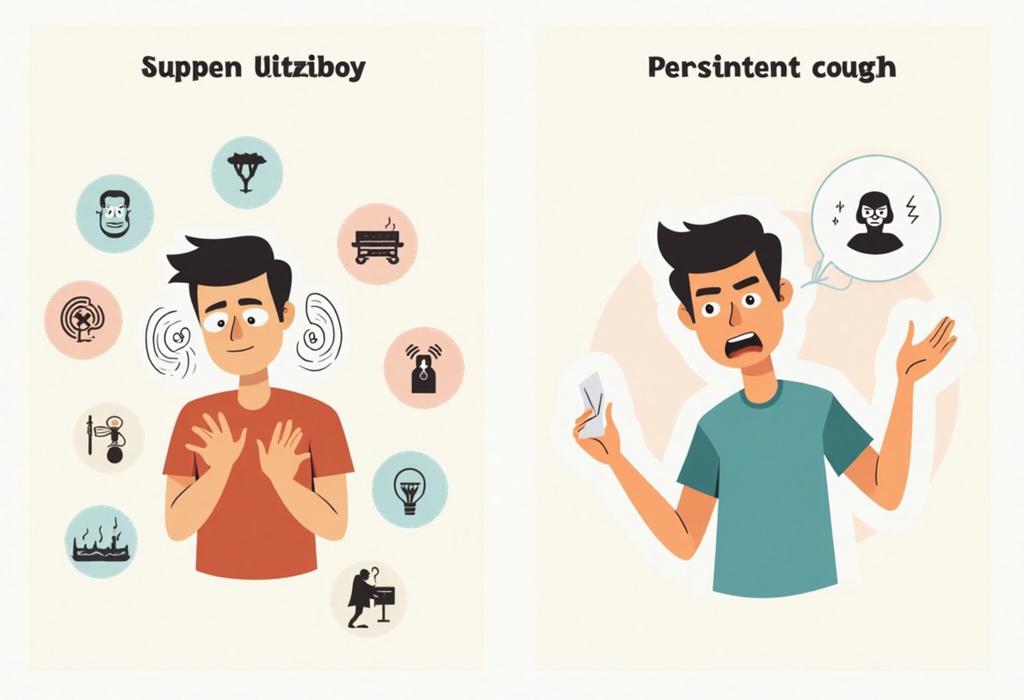For more details on this content, please review the step-by-step guide and frequently asked questions.
From Sudden Dizziness to Persistent Cough: Is It Serious?

Step-by-Step Guide
Recognizing Sudden Dizziness
Sudden dizziness can stem from various causes. Begin by assessing the associated symptoms. Note any recent changes in medication, dehydration, or stress, and consider whether you've experienced lightheadedness, vertigo, or fainting spells.
Identifying the Causes of Dizziness
Understand common causes of sudden dizziness: Low blood pressure, dehydration, inner ear issues, anxiety, or more severe conditions like strokes. Create a list of possible causes based on your symptoms.
Monitoring Accompanying Symptoms
Document additional symptoms that accompany your dizziness, such as headaches, vision changes, nausea, or difficulty speaking. Keeping a journal of these occurrences can provide valuable information for your healthcare professional.
Assessing a Persistent Cough
Determine the nature of your cough. Is it dry or productive? Have you had it for more than three weeks? Evaluate if it's accompanied by other symptoms such as fever, shortness of breath, or chest pain.
Causes of Persistent Cough
Persistent coughs can arise from various conditions, including allergies, respiratory infections, acid reflux, or chronic diseases. Thorough research on these conditions may help clarify your situation.
When to Seek Medical Attention
If dizziness or cough persists, worsens, or worsens in association with other symptoms, seek medical evaluation. Priority cases include: loss of consciousness, debilitating pain, unusual changes in behavior, or difficulty breathing.
Documenting Your Medical History
Prepare for your visit to the healthcare provider by documenting your symptoms, medical history, and any treatments tried. Include family history of respiratory or neurological issues that may be relevant.
Possible Tests and Diagnoses
Be prepared for your doctor to recommend tests such as blood tests, imaging studies, or pulmonary function tests to ascertain the cause of your dizziness or cough. Ask questions and understand the rationale behind each test.
Understanding Treatment Options
Treatment will depend on the diagnosis. Discuss options with your healthcare provider. It may involve medications, lifestyle changes, or more specialized therapies based on the underlying condition.
Following Up and Managing Symptoms
Finally, make sure to follow up with your healthcare provider as necessary. If prescribed medications or therapies, monitor their effectiveness and report any side effects or new symptoms promptly.








